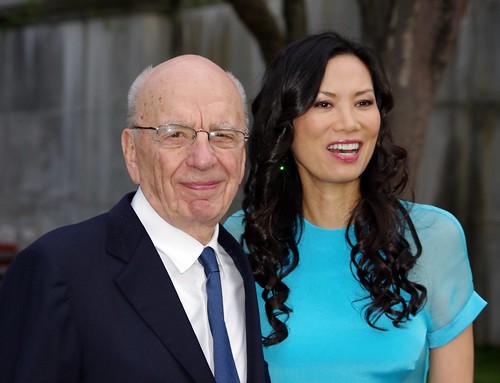 Recently, I was watching The View on ABC. The panel was discussing forgiveness when co-host Jenny McCarthy brought up how her views about her Ex had changed. She and her husband, John Asher, had a son, but apparently there were plenty of hard feelings attending the 2005 divorce. McCarthy described a change she recently went through concerning her child’s father.
“I think when you have a child,” McCarthy said, “you create a soul contract.” She went on to explain the concept in terms of being there to provide what your child needs. And recently, she said she had started to view the man she had been married to much more as the father of their son, and much less as the former husband with whom she had been in conflict.
She was able to love him again, in that parent role, because their son needed his parents to have regard for one another. What was even more impressive was that their son picked up on the change right away, and clearly appreciated it.
That concept, that the relationship roles shift during and after divorce, is a hard one to internalize. It can be excruciating to cease regarding a person as an intimate partner (with its attendant pressure to run in the opposite direction) and simply regard a former spouse–and appreciate them–as the Other Parent of your children, but that’s often exactly what your children need.
Recently, I was watching The View on ABC. The panel was discussing forgiveness when co-host Jenny McCarthy brought up how her views about her Ex had changed. She and her husband, John Asher, had a son, but apparently there were plenty of hard feelings attending the 2005 divorce. McCarthy described a change she recently went through concerning her child’s father.
“I think when you have a child,” McCarthy said, “you create a soul contract.” She went on to explain the concept in terms of being there to provide what your child needs. And recently, she said she had started to view the man she had been married to much more as the father of their son, and much less as the former husband with whom she had been in conflict.
She was able to love him again, in that parent role, because their son needed his parents to have regard for one another. What was even more impressive was that their son picked up on the change right away, and clearly appreciated it.
That concept, that the relationship roles shift during and after divorce, is a hard one to internalize. It can be excruciating to cease regarding a person as an intimate partner (with its attendant pressure to run in the opposite direction) and simply regard a former spouse–and appreciate them–as the Other Parent of your children, but that’s often exactly what your children need.  Recently, I was watching The View on ABC. The panel was discussing forgiveness when co-host Jenny McCarthy brought up how her views about her Ex had changed. She and her husband, John Asher, had a son, but apparently there were plenty of hard feelings attending the 2005 divorce. McCarthy described a change she recently went through concerning her child’s father.
“I think when you have a child,” McCarthy said, “you create a soul contract.” She went on to explain the concept in terms of being there to provide what your child needs. And recently, she said she had started to view the man she had been married to much more as the father of their son, and much less as the former husband with whom she had been in conflict.
She was able to love him again, in that parent role, because their son needed his parents to have regard for one another. What was even more impressive was that their son picked up on the change right away, and clearly appreciated it.
That concept, that the relationship roles shift during and after divorce, is a hard one to internalize. It can be excruciating to cease regarding a person as an intimate partner (with its attendant pressure to run in the opposite direction) and simply regard a former spouse–and appreciate them–as the Other Parent of your children, but that’s often exactly what your children need.
Recently, I was watching The View on ABC. The panel was discussing forgiveness when co-host Jenny McCarthy brought up how her views about her Ex had changed. She and her husband, John Asher, had a son, but apparently there were plenty of hard feelings attending the 2005 divorce. McCarthy described a change she recently went through concerning her child’s father.
“I think when you have a child,” McCarthy said, “you create a soul contract.” She went on to explain the concept in terms of being there to provide what your child needs. And recently, she said she had started to view the man she had been married to much more as the father of their son, and much less as the former husband with whom she had been in conflict.
She was able to love him again, in that parent role, because their son needed his parents to have regard for one another. What was even more impressive was that their son picked up on the change right away, and clearly appreciated it.
That concept, that the relationship roles shift during and after divorce, is a hard one to internalize. It can be excruciating to cease regarding a person as an intimate partner (with its attendant pressure to run in the opposite direction) and simply regard a former spouse–and appreciate them–as the Other Parent of your children, but that’s often exactly what your children need. 

